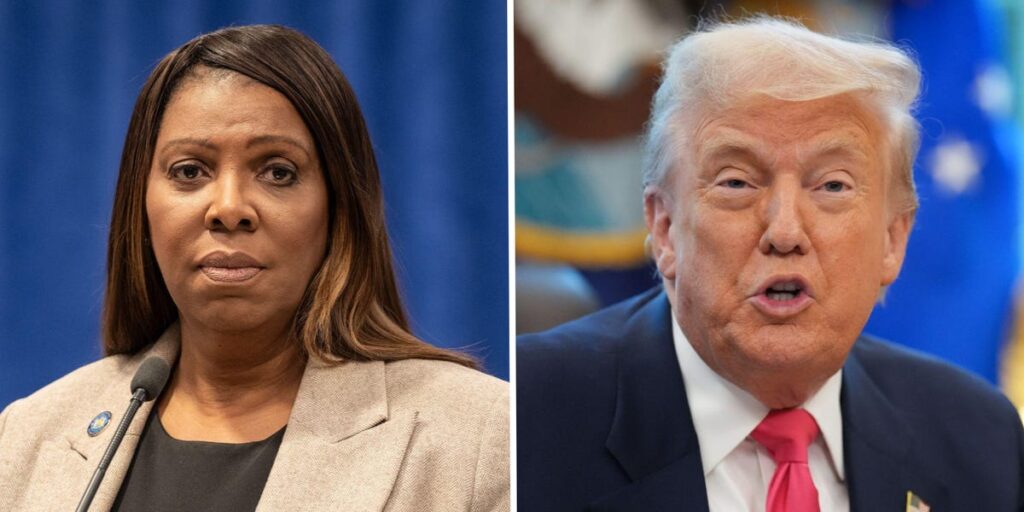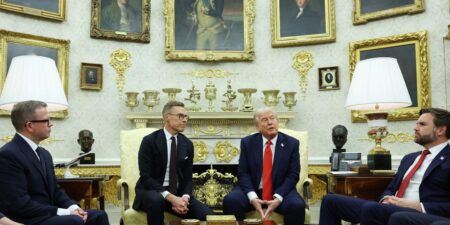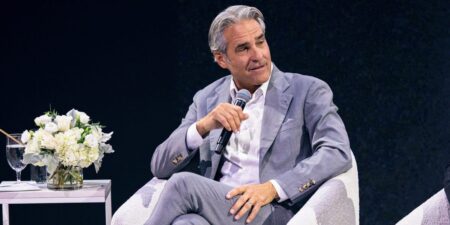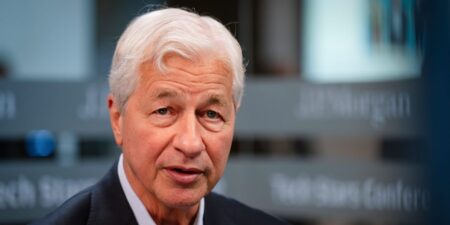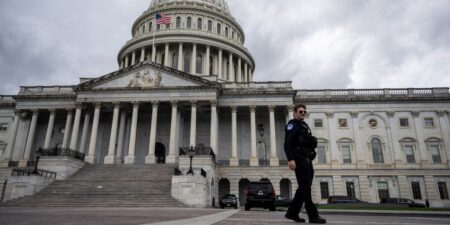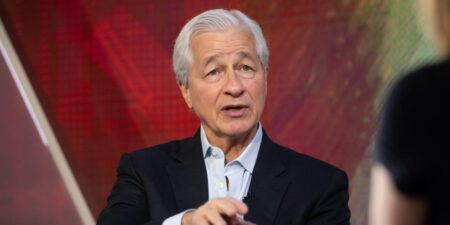A New York appellate court has tossed a massive civil fraud penalty against President Donald Trump and the Trump Organization, granting a significant legal win to the president.
But the judges still agreed that Trump and other Trump Organization executives were largely liable for fraud, leaving open a door for additional appeals.
In February of last year, after a three-month bench trial, a Manhattan judge ordered the Trump Organization, Trump, and a group of other executives to pay $454 million in penalties.
The case was brought by New York Attorney General Letitia James, who revealed internal Trump Organization documents and witness testimony that demonstrated Trump’s decadelong pattern of lying to banks about his worth in order to receive favorable terms for loans.
The penalties have since ballooned to over $527 million with additional interest, as Trump has pursued appeals, according to a calculation from the Associated Press.
On Thursday, a group of five appellate judges struck down the fines issued by trial judge Arthur Engoron, finding them excessive — but couldn’t agree on much else.
They issued three separate opinions spanning 323 pages. Four of the judges broadly agreed that Trump and his real estate company were liable for fraud for misrepresenting their assets.
Otherwise, the three opinions disagreed on significant legal issues underpinning the case, including whether the Trump Organization should be liable for every particular count, whether Trump should get a new trial, and whether James had the authority to bring the lawsuit against Trump in the first place.
After 11 months of deliberation — an unusually long time for the New York appellate court — two judges agreed to join the majority decision “for the sole purpose of ensuring finality, thereby affording the parties a path for appeal” to the state’s highest appeals court, one judge wrote.
In a Truth Social post, Trump praised the decision as a “TOTAL VICTORY.”
“I greatly respect the fact that the Court had the Courage to throw out this unlawful and disgraceful Decision that was hurting Business all throughout New York State,” he wrote.
Representatives for the New York Attorney General’s office didn’t respond to a request for comment.
The investigation roiled Trump’s real estate empire
James’ lawsuit alleged that Trump, his eldest sons Donald Trump, Jr. and Eric Trump, and former CFO Allen Weisselberg worked together to misrepresent the Trump Organization’s finances.
The executives inflated the valuations of Trump properties — by, for example, tripling the size of a penthouse on paper — making the Trumps appear wealthier than they seemed. Those falsified valuations were used to obtain favorable terms for loans from financial institutions as the family grew its real estate empire.
New York Supreme Court Justice Arthur Engoron, the trial judge, found Trump family members liable for some of the counts alleged in the lawsuit ahead of trial, but left other issues to be decided after he heard additional testimony from Trump family members, Trump Organization executives, and bank officials.
The trial, which had no jury, spanned from October 2023 to January 2024 and often took on a carnivalesque air between highly technical testimony about the finer points of real estate accounting practices.
Donald Trump attended the trial for several days, complaining about the case during breaks in front of journalists parked in the hallways. Donald Trump Jr. cracked jokes with the judge and requested a “sexy” illustration from a courtroom artist when he took the witness stand. In a closing argument, Trump attorney Alina Habba — now the top federal prosecutor in New Jersey — interrupted the judge as she tried to talk about James’s preference for Starbucks. Before then, the now-president gave another closing argument himself.
Trump’s attorneys have characterized James’s case as politically motivated and argued that lenders didn’t actually lose money on the loans given to the Trump Organization, even if the company fudged the underlying records to raise the debt.
Thursday’s majority opinion drew the opposite conclusion, finding that the evidence uncovered in James’s investigation “demonstrates that defendants engaged in a decade-long pattern of financial fraud and illegality.”
“The ‘political’ choice would have been to not bring this case, thereby avoiding a fight with a powerful adversary,” the judges wrote.
But the opinion also found Engoron’s penalties to be excessive.
“While harm certainly occurred, it was not the cataclysmic harm that can justify a nearly half billion-dollar award to the State,” the judges wrote.
Thursday’s decision came amid two separate Justice Department probes into James, over whether the Trump inquiry violated his civil rights, and over whether she personally committed mortgage fraud. Both probes were initiated after Trump was reelected president. James has previously denied wrongdoing.
More appeals are on the horizon
If either Trump or the New York Attorney General’s Office appeals Thursday’s court decision, it’ll offer an opportunity for the president’s new lawyers at Sullivan & Cromwell. In May, the elite law firm — which is also representing Trump in his appeal for his criminal conviction — joined the defense team for the civil fraud case.
Barbara Jaffe, a retired New York Supreme Court Justice, told Business Insider that it was likely the parties would continue to appeal, given that the opinion was not a legal slam dunk for either side.
Team Trump may appeal the part of the opinion that they surely disagree with: the upholding of Engoron’s fraud finding, according to Jaffe, now an attorney at Borah, Goldstein, Altschuler, Nahins & Goidel. And the New York Attorney General’s Office may appeal the findings that went against them: the vacating of the money penalty and the cash sanctions against Trump’s legal team, she said.
“Each side has a bone to pick,” said Jaffe, who frequently attended the trial.
The case could drag on for another year or more, during which in interest on Trump’s appeal bond will continue to rise by $1 million every nine days.
During that appeal, no money would change hands. Neither Trump nor James is permitted to touch a $175 million appeal bond that Trump posted in April of last year.
The bond is underwritten by Knight Specialty Insurance Company, and is wholly collateralized by Trump’s cash. Trump continues to have no access to that cash, court records show.
This story has been updated.
Read the full article here







